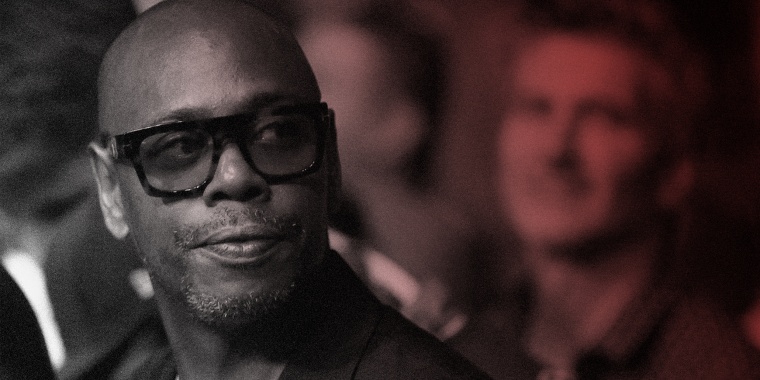Dave Chappelle has released three Netflix comedy specials over the previous three years, and each featured a lengthy segment of commentary about transgender people. Another Netflix special was released Oct. 5, and, again, it features a lengthy bit mocking trans people. These specials have kicked off a predictable conversation about comedy, bigotry and the seeming cultural zeitgeist: cancel culture.
These specials have kicked off a conversation about comedy, bigotry and the seeming cultural zeitgeist: cancel culture.
The special itself is pretty boilerplate comedy that’s been performed around the world for as long as I can remember. Chappelle attempts to deliver sharp cultural commentary by comparing the plights of Black people with that of LGBTQ people, but it largely falls flat when you consider that Black LGBTQ people, you know, exist.
Chappelle points out that white LGBTQ people tend to overlook their Black counterparts in policy discussions and advocacy, but anyone involved in queer activism already knows this and it’s awful. He then immediately throws this point away by taking sides with the closest thing we have to a queen of the white people, J.K. Rowling, calling himself a “TERF,” or “trans exclusionary radical feminist,” and accusing trans people of making up the term “to win arguments.” In reality, the term was likely invented in the 1970s after a bitter divide between feminists who include trans people in their feminism and those who exclude trans people. The person credited with coining the term suspects they were merely the first person to write it down online.
Chappelle's routine mostly ignores the Black queer people who face homophobia and racism at the same time and he treats the Black community as a completely separate entity from LGBTQ people. It’s ridiculous, and he’s drawn criticism on social media from Black LGBTQ people like the trans advocate and writer Raquel Willis.
But none of this is new to Chappelle, who declares in his special that “Twitter isn’t real.” It’s a convenient way to deflect legitimate criticism. His critics end up in a double bind of Chappelle’s own creation. If they don’t watch his special and call out his attacks on trans people, then they get blowback for not even watching the material, but if they do watch, then they have no right to criticize, because as Chappelle says in his special, “You clicked on my face.”
That’s the point of his bit. If you don’t watch, you have no standing to criticize, but if you do watch, not only do you still have no right to criticize, but also he gets your click, your view, and a chit in his belt in the hopes of landing a fifth special. Either way, Chappelle wins, and if you watch, he wins and laughs all the way to the bank.
In an appearance at The Hollywood Bowl last week, Chappelle crowed about “cancel culture,” a now familiar refrain from those who consider themselves edgy. “If this is what being canceled is, I love it,” he said. And why wouldn’t he? He’s coming off his fourth Netflix special in as many years after doing the whole “cancel culture” parade in the first three.
His transgender bits have revived his career. In his first special, he said the idea of being transgender is funny in and of itself. When the trans community predictably reacted, because who wouldn’t, he used the blowback to fuel his next special and each subsequent one.
In doing so, he’s developed a reputation, and those who are already predisposed to hate on trans people are now a built-in audience for his specials. They’ve responded with an undying defense on social media, building Chappelle into a nearly mythical creature on the level of Rowling. He now says he’s done ragging on the trans community and will move on to other topics in future specials.
But more than that, he’s discovered that there’s a segment of the population who will tune into anything by anyone who claims to be “canceled,” no matter who or what the material is. It’s the modern day way of expressing that a creator is “edgy” or “controversial," and many consumers flock to these acts like moths to a flame.
There’s a segment of the population who will tune into anything by anyone who claims to be “canceled,” no matter who or what the material is.
On my podcast, Cancel Me Daddy, we’ve dubbed this the “cancel culture grift economy.” In modern day America, the quickest and easiest way to make a buck these days is to get canceled. There’s a built-in infrastructure of media attention and opportunities that come to those who aren’t afraid to offend or go too far.
But the fact of the matter is, the only person to get “canceled” in this whole Chappelle mess has been a trans Netflix employee who was suspended for criticizing the special and Netflix for running it.
Even my writing this article indirectly ends up helping line Chappelle’s pockets by giving him more attention. I hate that, but at the same time his comments shouldn’t go unchallenged. Not when nearly 40 trans women of color have been killed in the U.S. this year. Chappelle isn’t responsible for those deaths, but those murders represent about 40 reasons why Chappelle’s jokes are no laughing matter.

